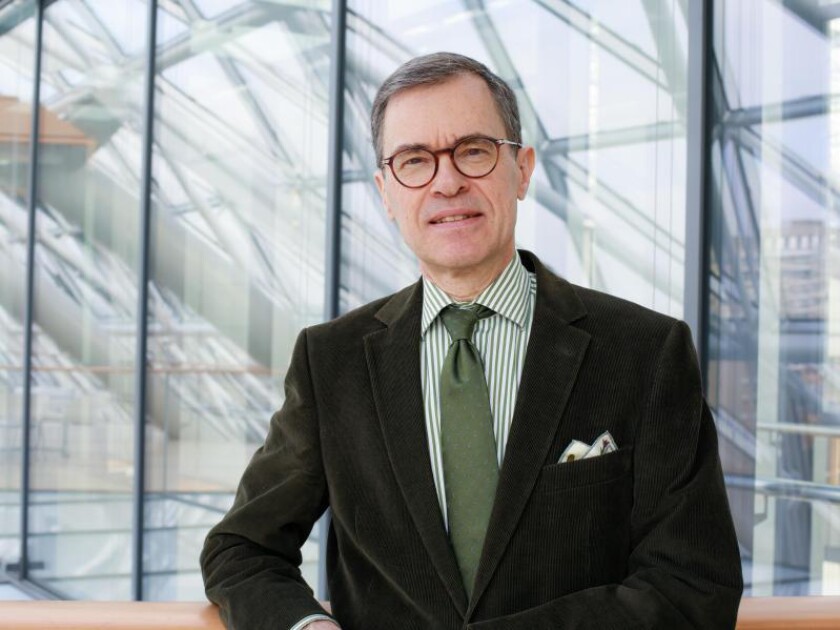De Mazières started at the bank in 2006 and had two peaceful years - which included early work on green bonds - before the global financial crisis. This saw the finance directorate review its management of treasury assets and adopt a more conservative mindset in the face of volatility. Next came the European sovereign crisis, where the EIB’s own rating was placed on a negative outlook. “But we overcame the challenge and adopted a more comprehensive way of interacting with the rating agencies,” he says.
His career ends amid similarly tumultuous times. The Covid pandemic forced the bank to operate remotely for a long period of time - though de Mazières says this worked far better than he would have thought. War in Ukraine saw him spending time with investors to explain the structure of the bank’s support. “The nature of our business model differs from other IFIs in that we make more use of external guarantees, which makes it possible to take new risks in support of Ukraine without changing the overall credit rating,” he says.
None of these events hampered the EIB’s work in creating a transformational new asset class. Of all the bank's many achievements in which he has shared, it is green and sustainable bonds that stand out. “From the beginning the EIB set the pillars around which the green bond concept could develop,” he says. The allocation of proceeds to specific projects, the importance of reporting and external validation. All these elements are standard practice in today’s global green bond market. The EIB was at the leading edge of their creation, and has remained a force in sustainable finance.
“The EIB was also instrumental in the creation of the Green Bond Principles and more recently was heavily involved in the European Commission’s work on the regulatory compact applicable to sustainable finance,” de Mazières says. “The EIB of today is not just the European Investment Bank, it's the EU Climate Bank.”
Modernisation and innovation
He also speaks with pride of the EIB’s innovative work in other parts of the capital markets. This includes the bank’s role in the shift from LIBOR to new risk-free rates. The EIB was the first issuer to use SONIA as the underlying reference rate, and has been participating in the shift to SOFR in the US. De Mazières leaves an EIB that has also become the issuer of reference for blockchain bonds. “We are the one entity that has a track record and has brought real syndicated transactions involving multiple banks,” he says. “If someone wants to test new technology for bond market syndication, I think they would naturally think of the EIB, and that’s something we can be proud of.”
Not only has the EIB changed the market, but it has changed internally too. De Mazières himself successfully convinced the ECB to treat the EIB as a counterparty for monetary operations. This is a rarity for IFIs, but provides assurance to investors and rating agencies. “It comes with attachments, but I like the attachments because we are subject to Euro system oversight for management of liquidity risk,” he says.
In a similar vein, over the course of his tenure the EIB has adopted more of the practices of a global bank. “This includes a solid middle office that didn’t previously exist, and a back office that makes heavy use of new tools and technologies,” he says. “We are very active in testing and checking, working on cybersecurity and using artificial intelligence in the management of intraday liquidity risk.”
De Mazières says he will miss not staying to see the adoption of new EU agreements on green finance, but ultimately it will be the colleagues he will miss most. “The beauty of being head for 17 years at an institution where there is no forced turnover is that you have time to really form a team,” he says. “There’s so many different smart people with diverse interests, and I’m sorry to leave that environment.”

